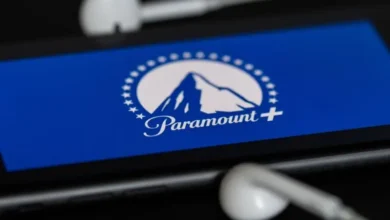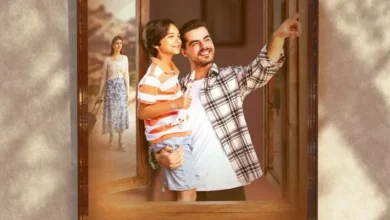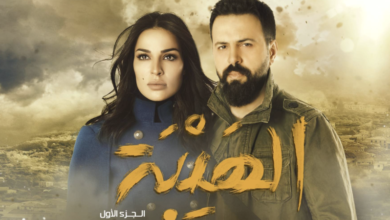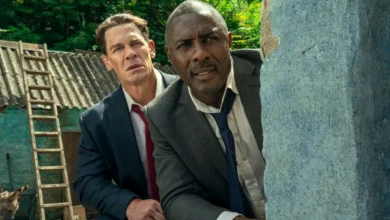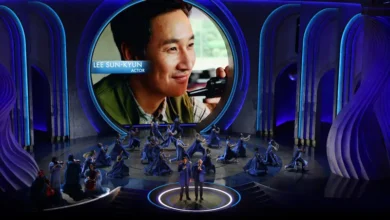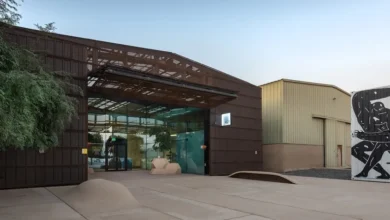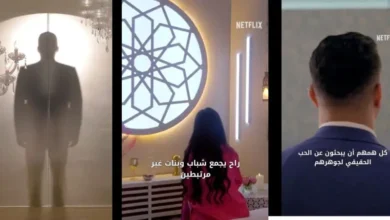From the country’s first feature film to bold themes, Qatar’s filmmakers step up the creative ecosystem
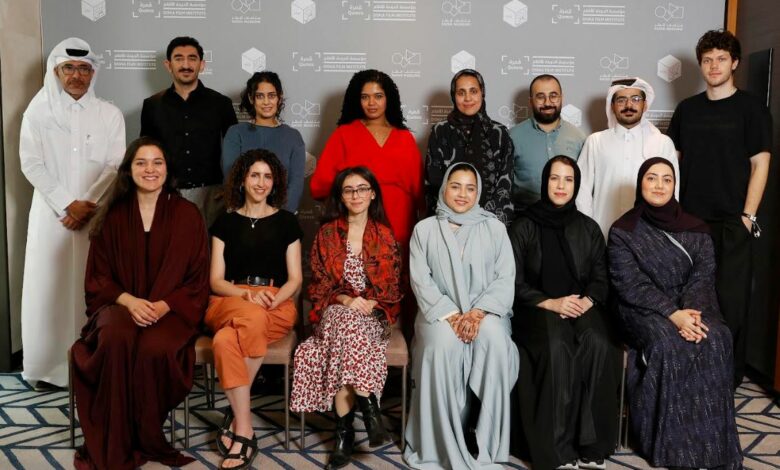
Doha, Qatar – April 7, 2025: The 11th edition of Qumra, Doha Film Institute’s annual talent incubator, opens a window to the evolution of the nation’s film industry with young filmmakers on course to presenting the country’s first feature film as well as exploring bold themes that challenge stereotypes.
With 18 Qatar-based projects being nurtured by the Qumra Masters and industry experts, the diversity of these projects represent the contribution of Doha Film Institute in its mission of creating a thriving creative ecosystem in the country. Today, young filmmakers from Qatar boldly say that five years from now, “it will be a completely different conversation, with more Qatari films playing at local cinemas.”
Qatari diretctor A.J. Al-Thani, who directs Sari & Amira, a Qumra 2025 feature narrative project in the production stage, is also working on another feature film – a passion project that she says has taken 10 years to script.
She says Arab cinema is now “like a gold rush, and our cinemas have a place in the world.”
Nadia Al-Khater, whose project Light to Ashes (Qatar) about a warrior-poet who is thrust into his past, is at Qumra echoed AJ Al-Thani’s sentiment. “I work with a lot of young people, and I see the talent pool growing bigger. The film culture in Qatar has been grown tremendously over the past 10 years, and a lot of people are coming in with great knowledge. In five years, things will be very different.”
Young filmmakers like Maryam Al-Mohammed, a student of Northwestern University in Qatar, are also pushing boundaries with powerful stories. Her film Qadha’ w Qadar (Qatar) is about a young woman who defies societal shame and her mother’s disapproval to seek a divorce and finally claim her freedom and independence.
A recipient of the DFI Grants, Maryam said the film’s topic is “very common but not talked about. I wanted to shed light on this problem and allow people to reflect on the causes of divorce. The theme also applies universally.”
Dr. Jamal Rashid Al-Khanji, whose film Jodari Meno (Qatar) documents his adventure to catch the largest dogtooth tuna, said he aims to discuss openly the theme of familial relationships from a man’s perspective. “The conversations with my mother, my children – these are what happen behind the doors. The film involved digging into areas that are seldom discussed, and I wanted to break the stereotypical images of men in this region. There are several subtle messages for the community [in the film].”
Amna Al-Binali, who directs Inside the White Canvas (Qatar), said making feature films has always been her intention, and Doha Film Institute is helping her “train the writing and directing muscles. We are never short on ideas and the Institute receives a number of ideas for shorts and features.” Her film spotlights on mental health. “I see a lot of young people frozen by their exposure to technology and social media, and how they feel crippled and depressed.”
Eiman Mirghani, the director of Villa 187 (Sudan, Qatar) discusses a theme close to home – the pain of having to leave home for 30 years. “It is a love letter to my home, and it shows what my family went through. I focus more on the memories and emotions of having to leave the nest.”
Rumor Has It (Qatar) by Mohammed D. Fakhro follows a Qatari food blogger who subscribes to an AI app that promises to earn him more followers. He said the comedy, “talks about the traditional expectations of who we are today versus digital expectations with global trends.”
Sad Boy: The Movie (Qatar) by N&LS follows a grief-stricken boy as he navigates his pain and haunting memories. Working on directing an animation movie for the first time, N&LS said her film is an “emotional journey that connects the viewer to the inner struggles of the character, and the necessity of empathy and healing.” Films drawing from Qatar’s stories across generations include Abu Fanoos (Qatar, Morocco) by Amira Abujbara and Horia El Hadad, about an ageing grandfather who seeks to protect his grandson from an eerie presence in the dark.
Other projects from Qatar at Qumra include Ghafla (Lebanon, Qatar) by Tony El Ghazal, about a precise watchmaker who races against the clock to craft the perfect watch for his only daughter; Gharbalah (Yemen, Qatar) by Afnan Tag about longtime housekeeper Sita, who secretly searches through packed belongings to retrieve a treasured keepsake before it’s lost forever; and Me Are You (Lebanon, Qatar) by Myriam Salloum, which explores how generational trauma seeps into various aspects of life, among others.
Bel Falastini (Jordan, Qatar) by Obada Jarbi is about a man searching for a home for himself and his family, navigating the complexities of identity, belonging, and the refugee experience, while The Sounds of Silence’ (Colombia, USA, Qatar) by Sebastian Delascasas, is the journey of a son, returning to Doha after five years forcing a confrontation with memory, language, and his mother’s illness .
